Proposals for a “virtual parliament” during the coronavirus outbreak will cost nearly £370,000 a month to implement, according to the Commons authorities.
MPs are expected to approve a motion to allow digital Commons sittings when they return to Westminster on Tuesday amid concern over lack of parliamentary scrutiny of the government’s handling of the Covid-19 outbreak.
Under a so-called hybrid model, up to 120 of the 650 MPs will be able to tune in to question sessions and statements using video-conferencing, while some 50 MPs will be allowed to sit in the Commons chamber.
Download the new Independent Premium app
Sharing the full story, not just the headlines
Screens will be set up inside the chamber to allow ministers to see MPs taking part in the debate, and Commons speaker Sir Lindsay Hoyle will call parliamentarians to speak from a list – meaning no heckling or interventions will be allowed.
Commons clerk Dr John Benger revealed the running costs could hit nearly £370,000 per month but said it was difficult to estimate the final total without knowing the length of the coronavirus outbreak.
In a memo on the project, he said: “Some of this expenditure had been planned for inclusion in future estimates, but this timeframe has been accelerated to meet the demands of implementing the hybrid model.
“The initial cost of development has already been endorsed by the House of Commons Commission costing £148,793. The running costs for maintaining this system are estimated at £369,267 per month.
“The actual expenditure by the House of Commons will depend on the length of time the model is required, and any additional changes which may be made to it. This makes the estimation of the total financial consequences difficult to calculate at this point.”
Parliament rose a week early for the Easter recess following concerns about the spread of coronavirus, with a number of MPs and staff affected.
Under the new plans, the Commons and the Lords will only sit for three days a week, with question sessions in the lower chamber limited to two hours.
The latest news on Brexit, politics and beyond direct to your inbox
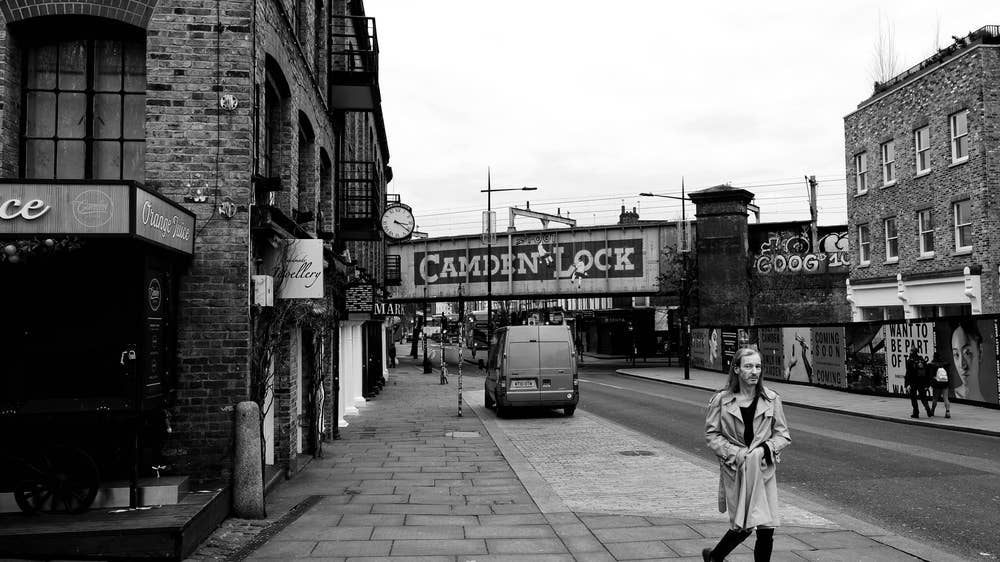
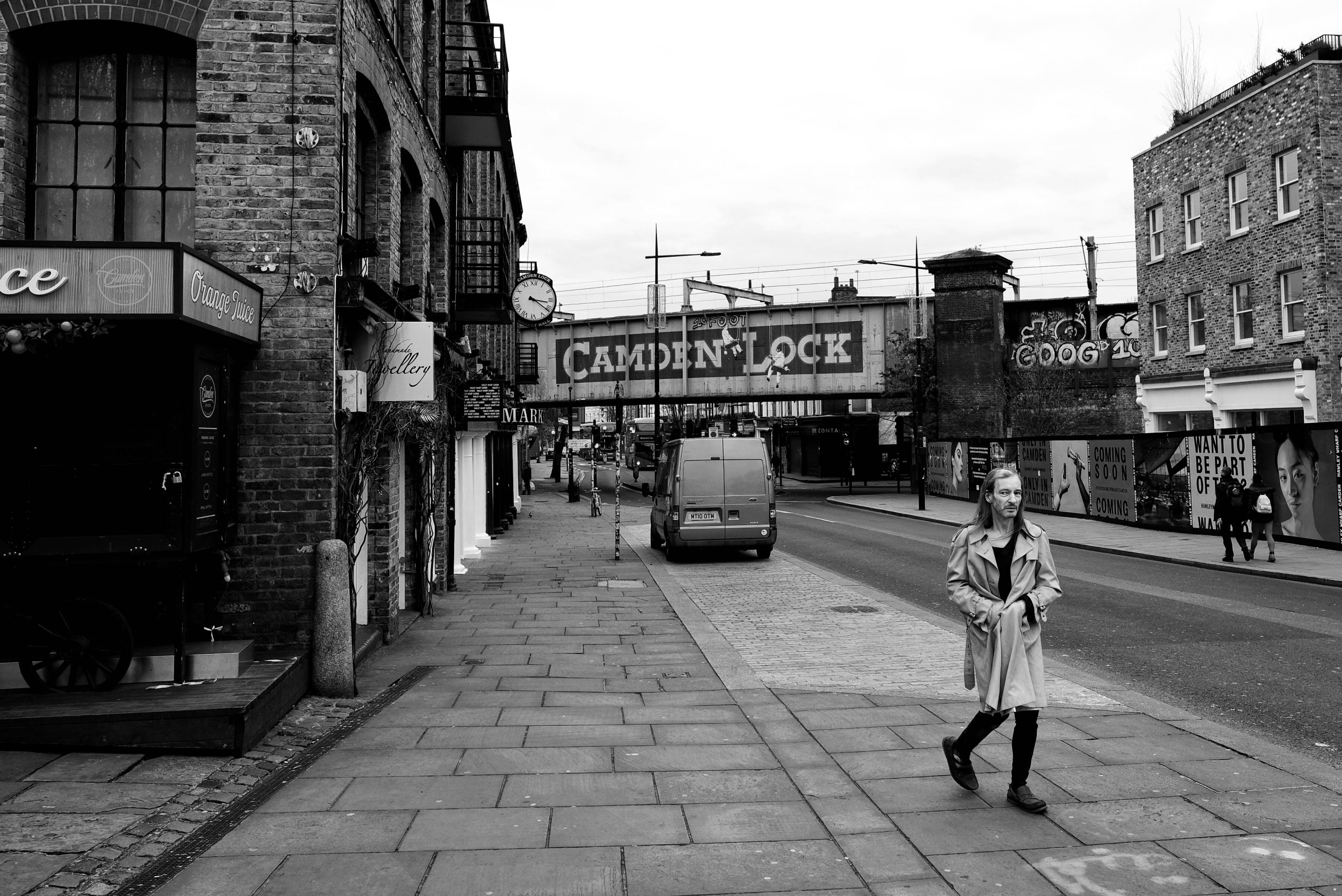
1/29
A man walks down a deserted Camden High Street
Photos Angela Christofilou
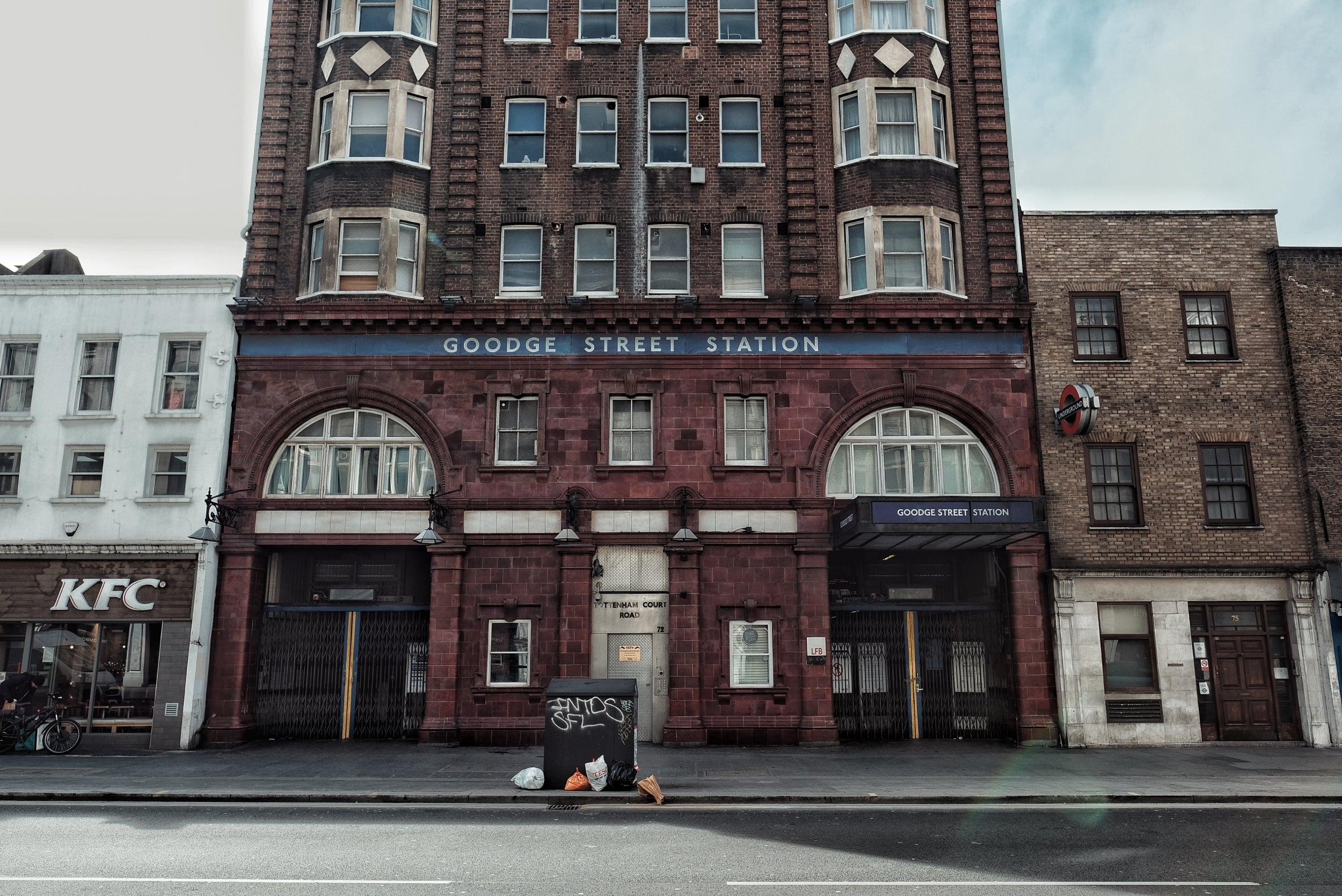
2/29
Goodge Street Station is one of the many stations closed to help reduce the spread
Angela Christofilou

3/29
An empty street in the heart of Chinatown
Angela Christofilou
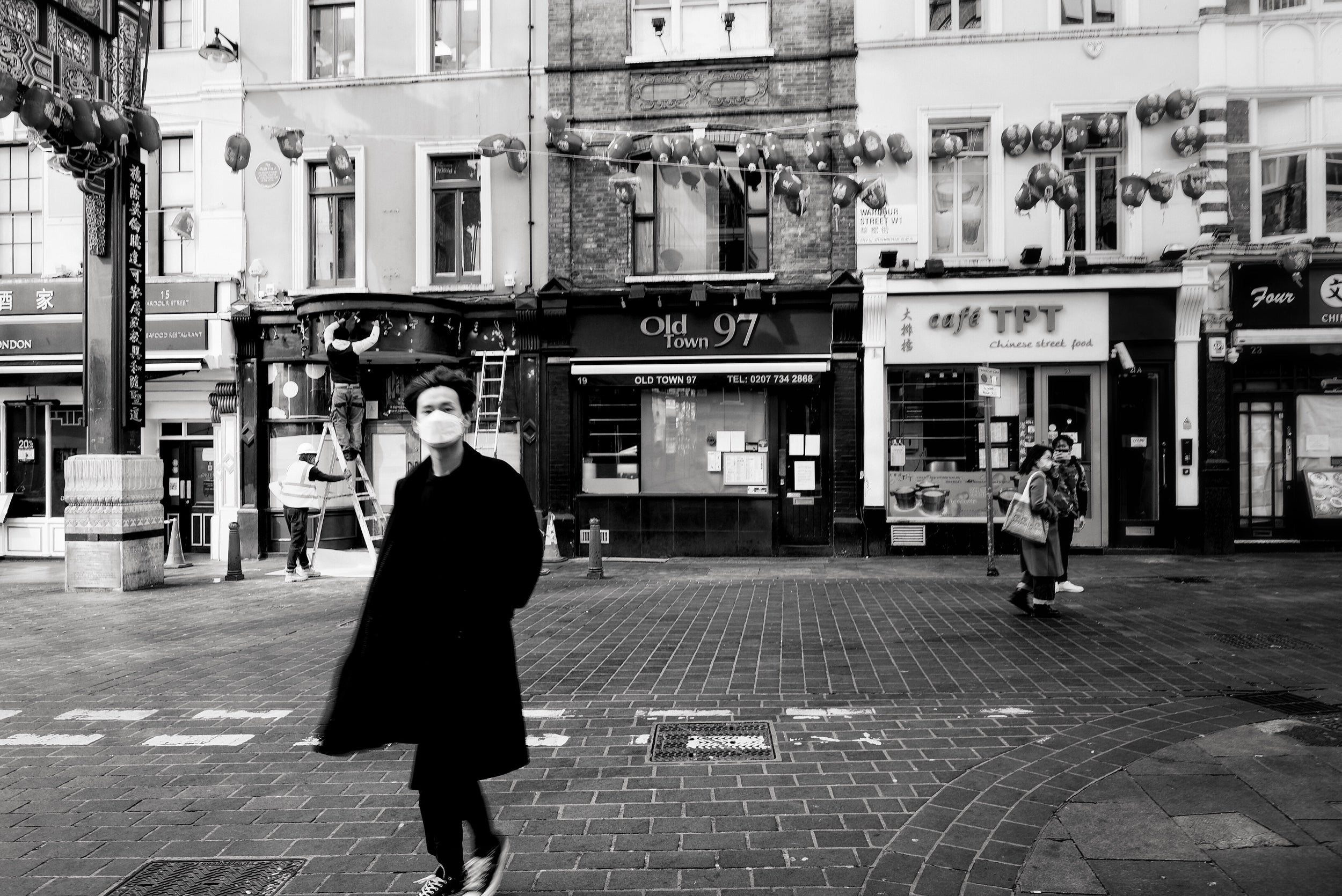
4/29
People in masks in Chinatown a day after the lockdown
Angela Christofilou
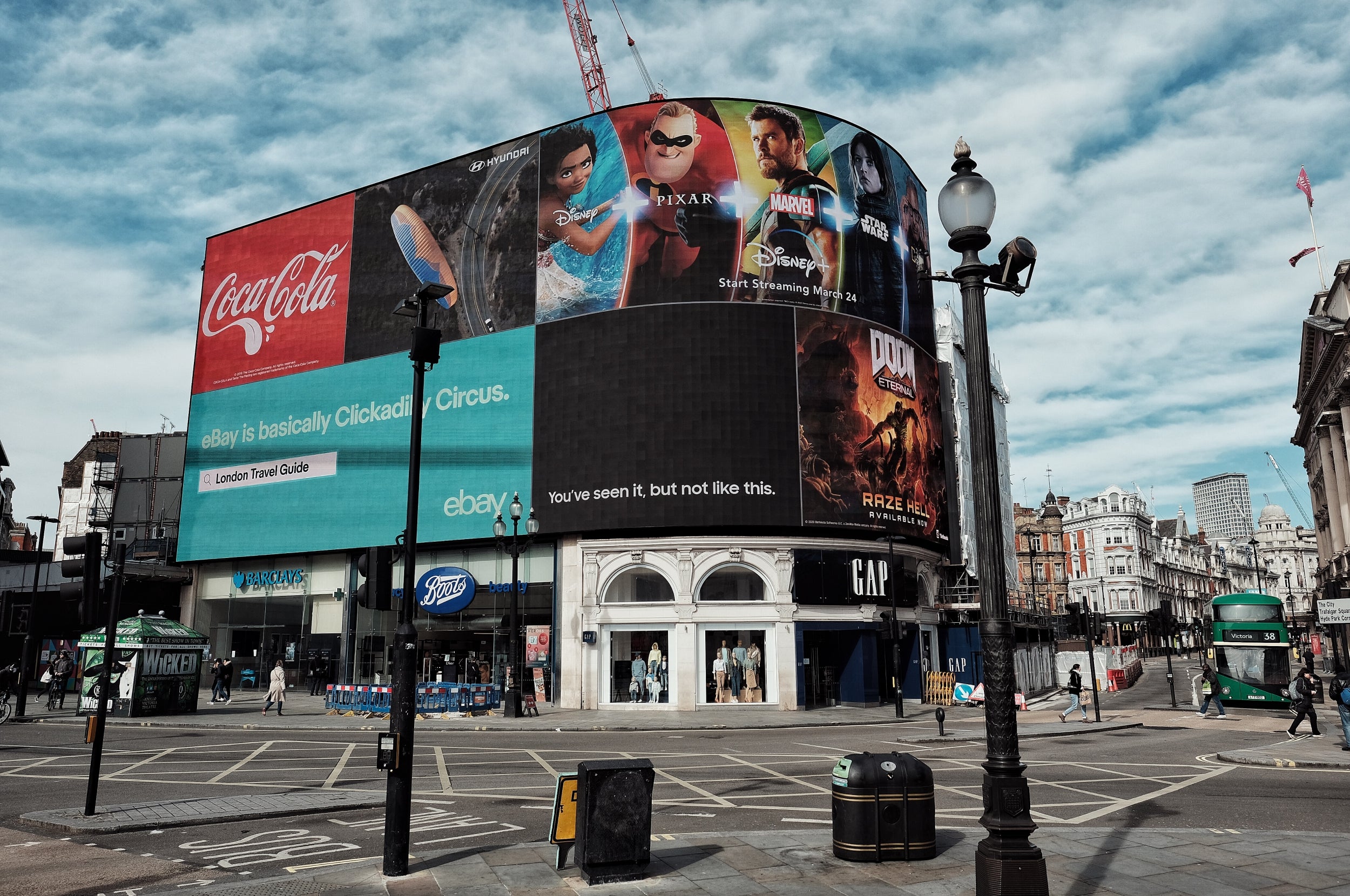
5/29
A near-empty Piccadilly Circus during the first week of lockdown
Angela Christofilou
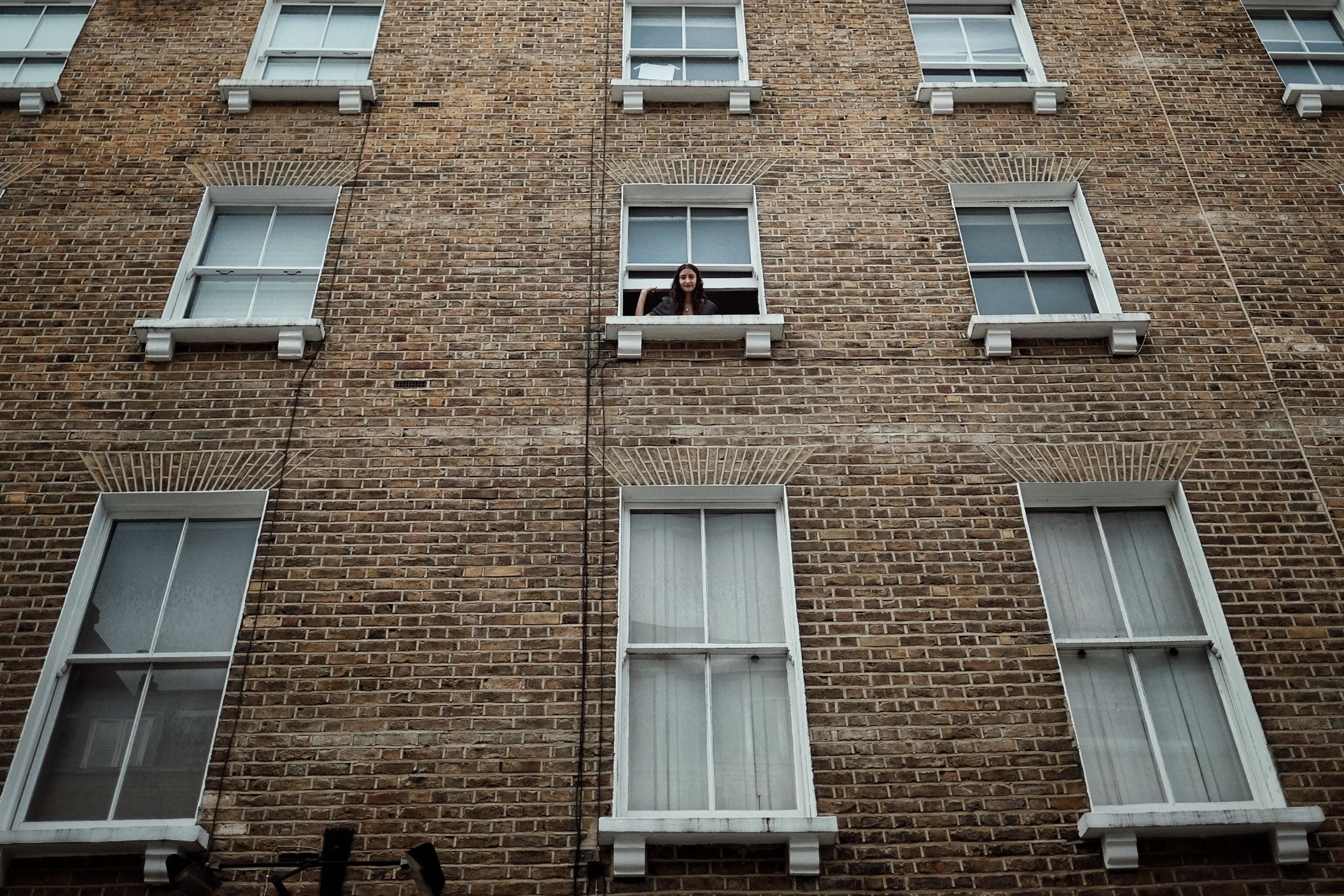
6/29
Sonja, my neighbour, who I photographed while taking a short walk. It was nice to briefly chat even from a distance
Angela Christofilou
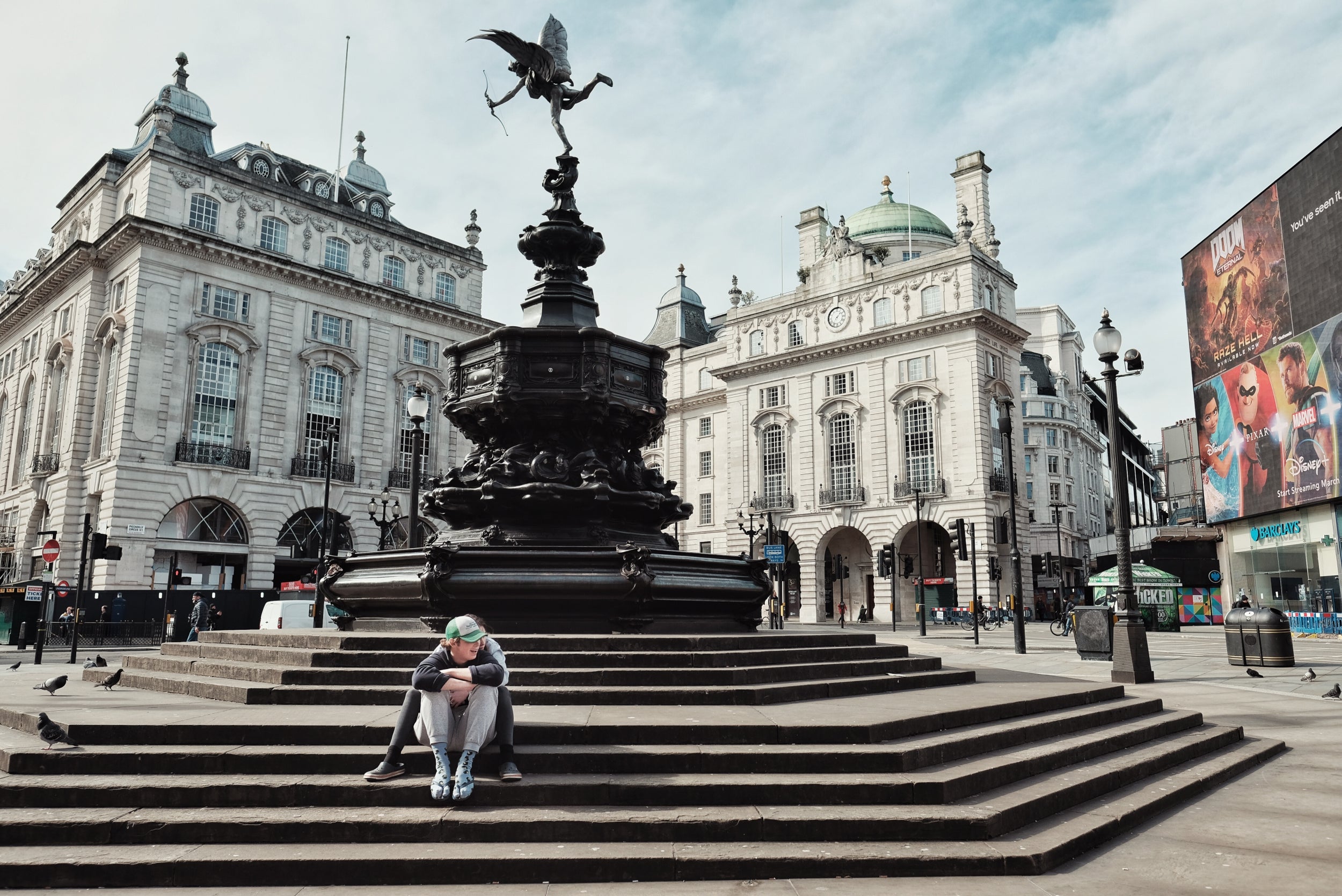
7/29
A couple sit on the empty steps of the statue Eros in Piccadilly Circus
Angela Christofilou
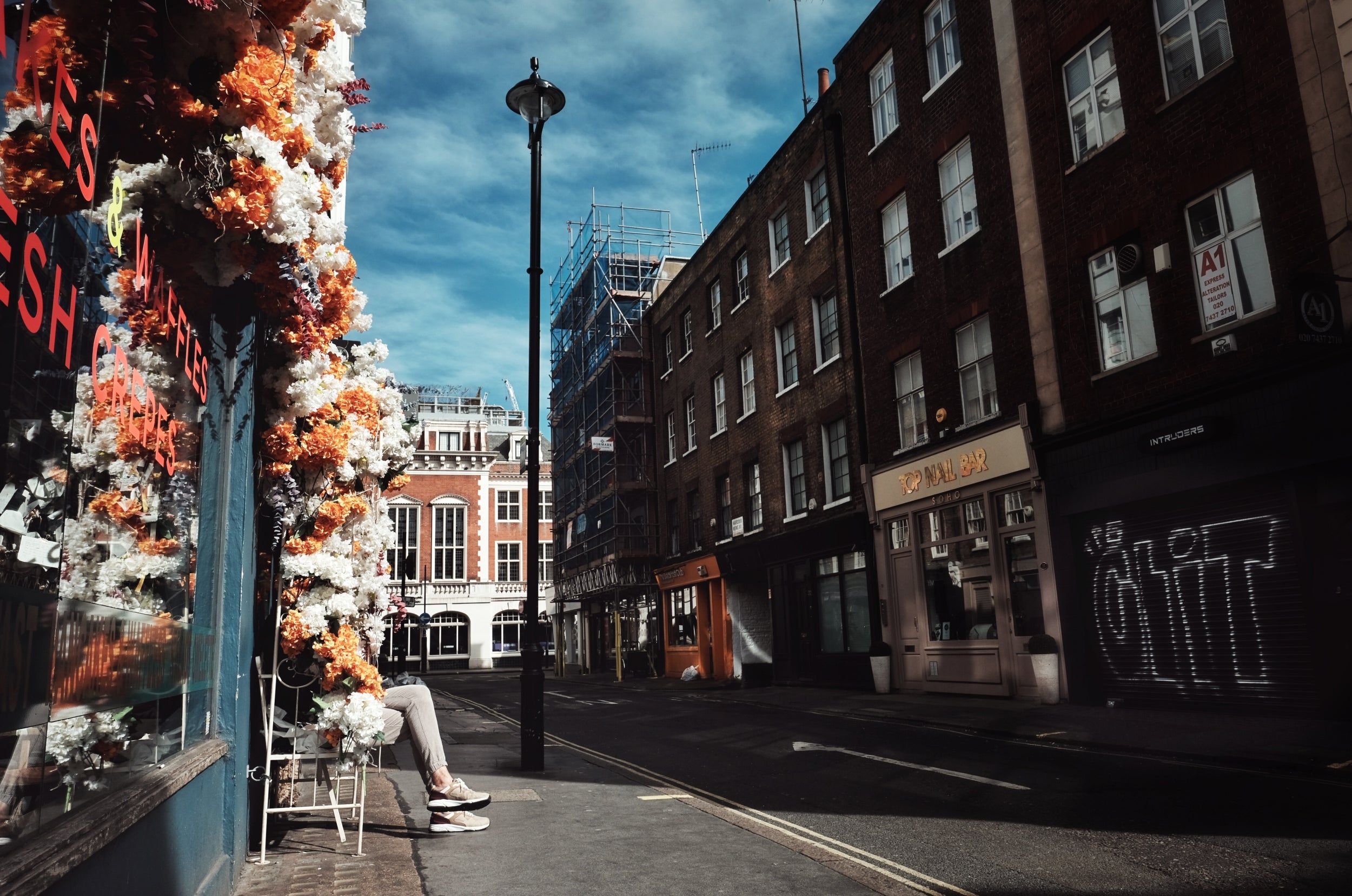
8/29
Making sure I stay two-meters apart – D’Arblay Street, Soho
Angela Christofilou

9/29
A mannequin behind a shop window. UK stores have closed until further notice
Angela Christofilou
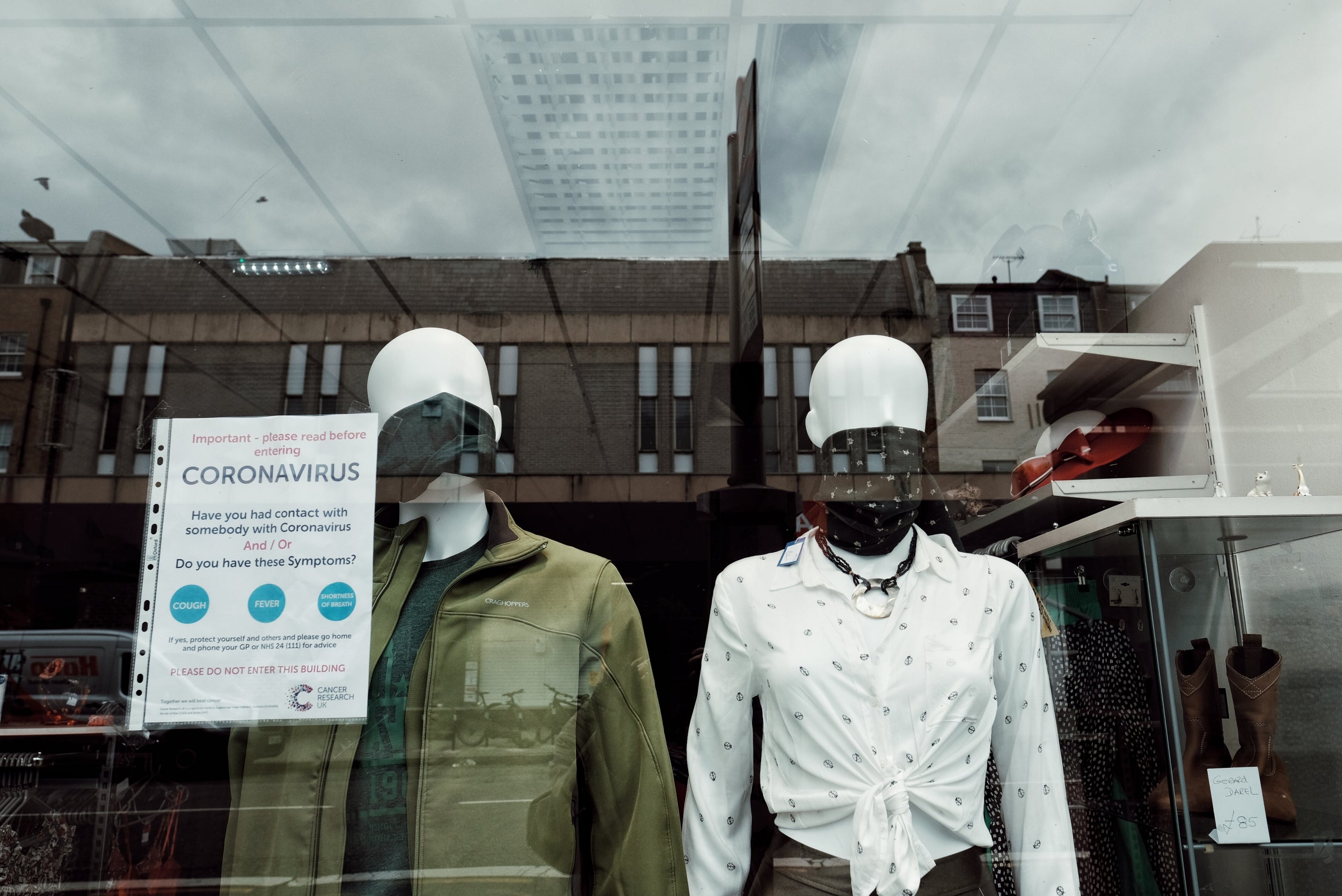
10/29
A notice displayed on a shop window in Camden
Angela Christofilou
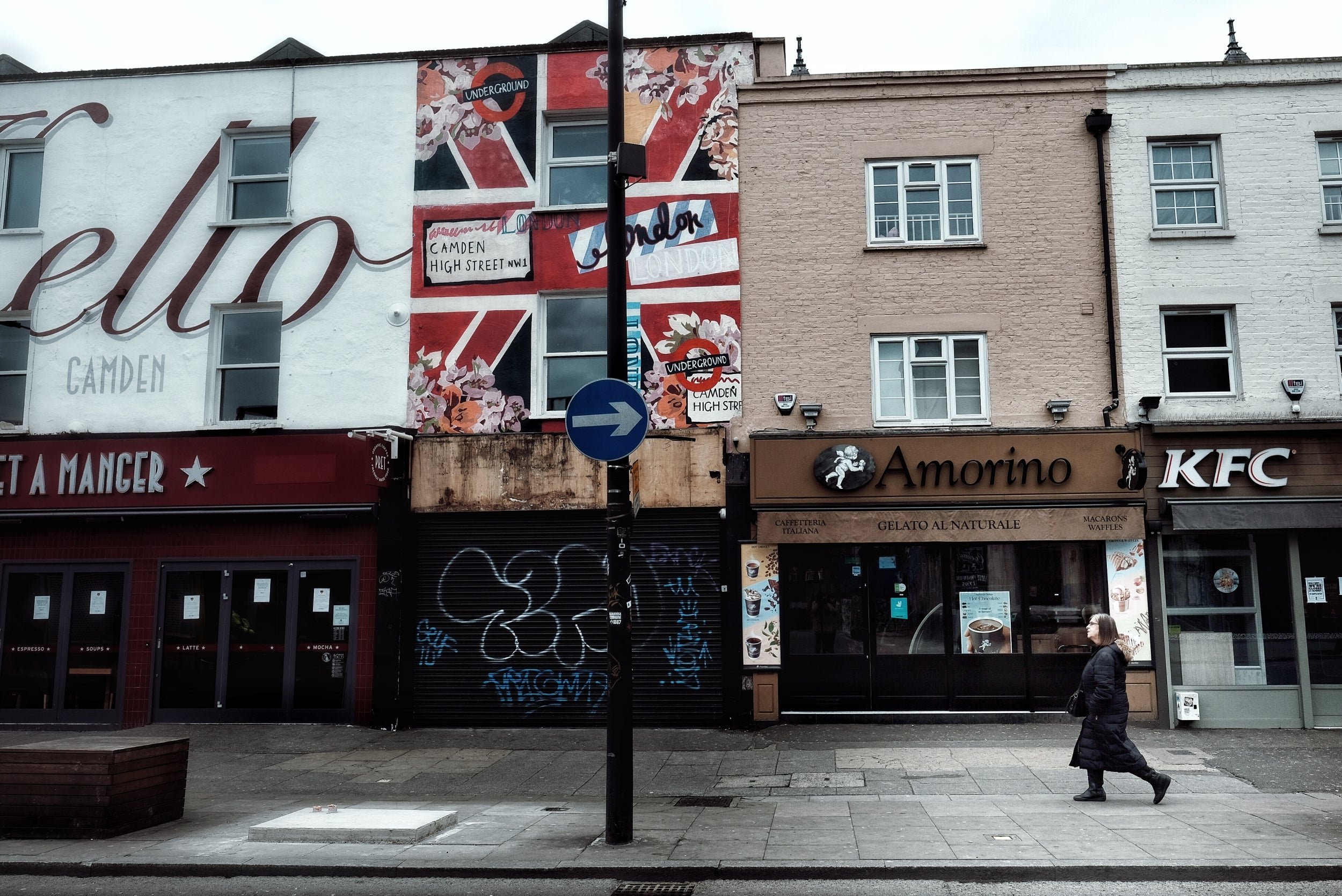
11/29
As part of the lockdown, all non-essential shops have been ordered to close.Image from Camden High Street
Angela Christofilou
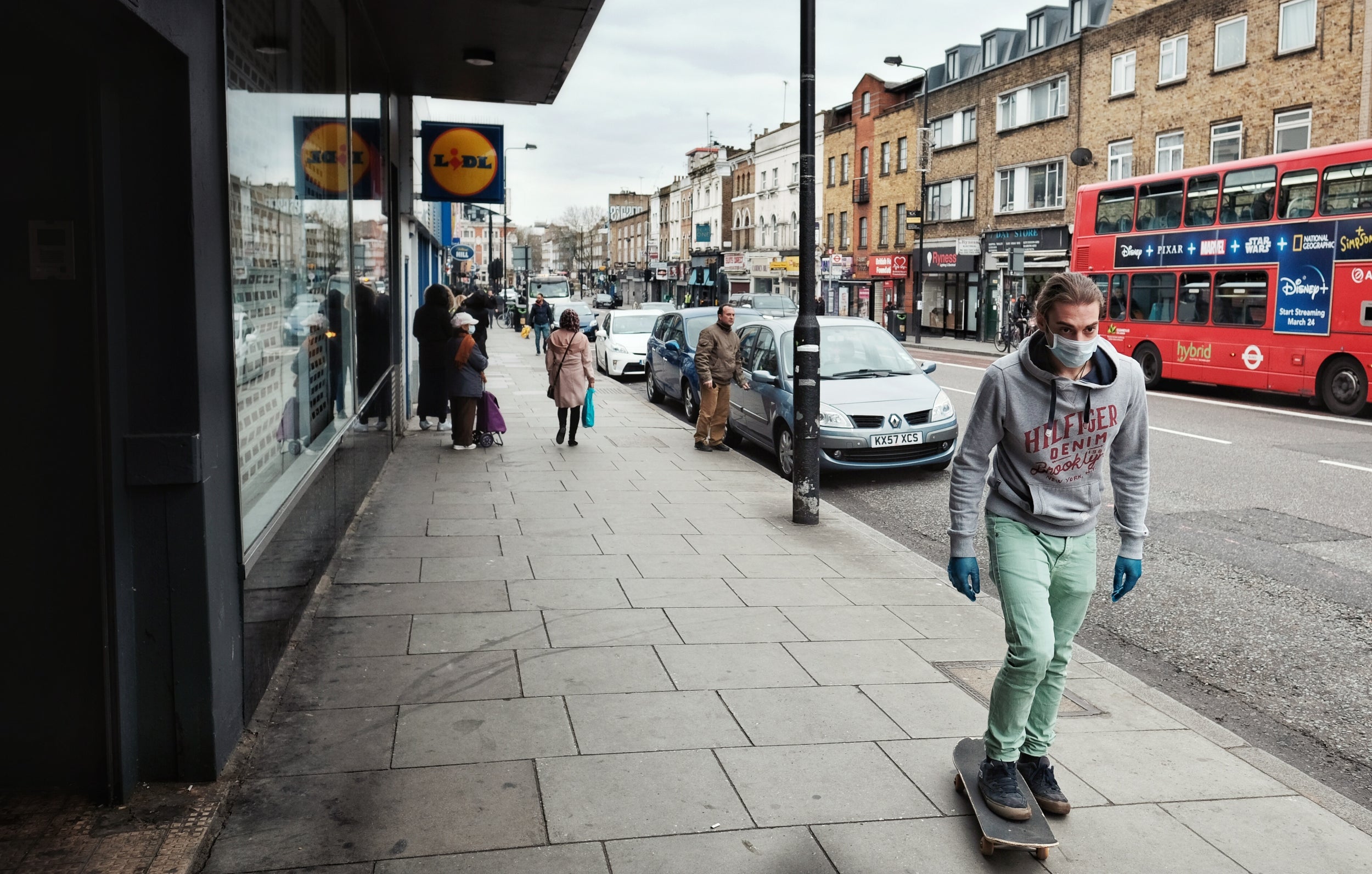
12/29
A skateboarder wearing a mask utilises his exercise allowance in the Camden area
Angela Christofilou
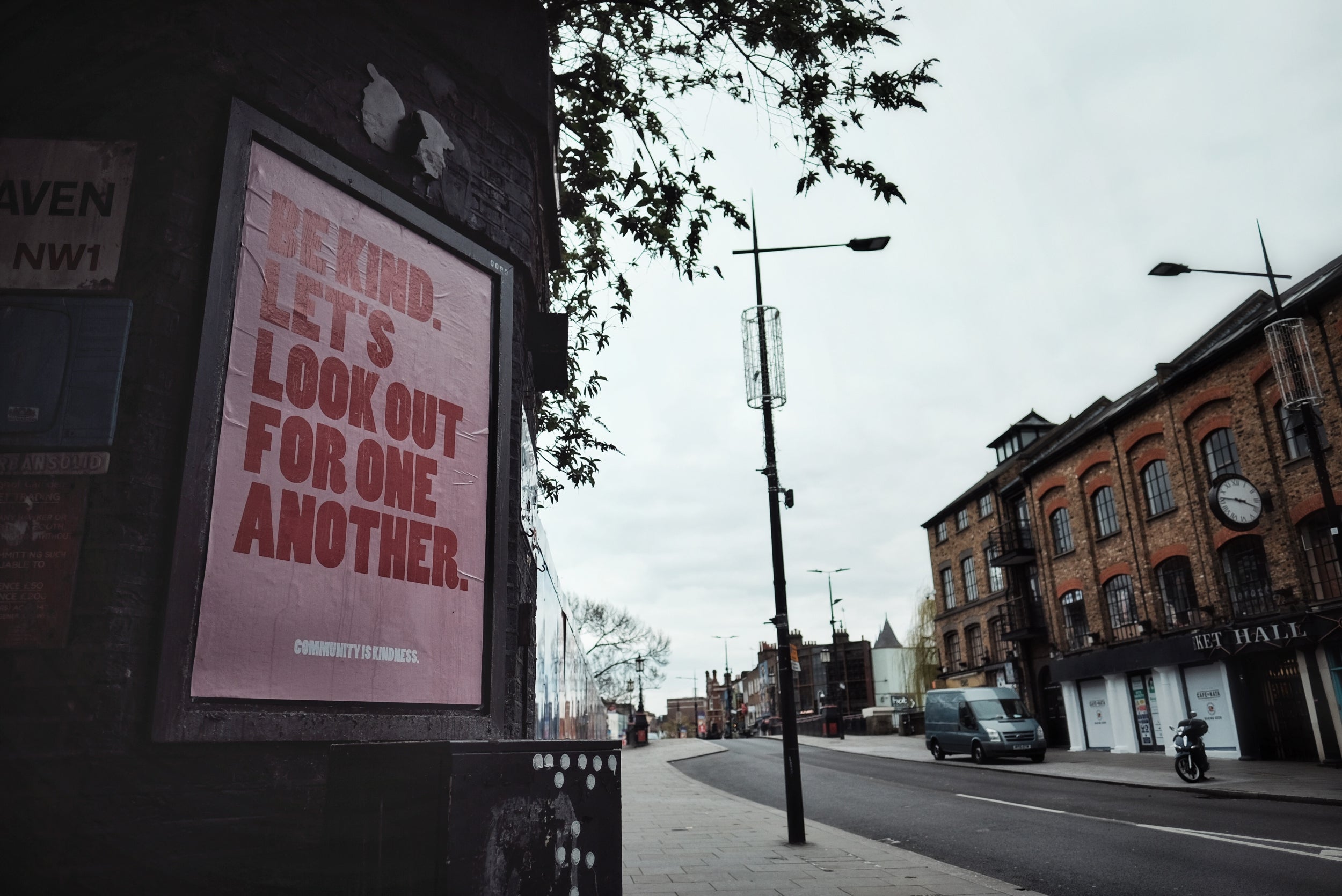
13/29
Communities have been coming together in a time of need
Angela Christofilou
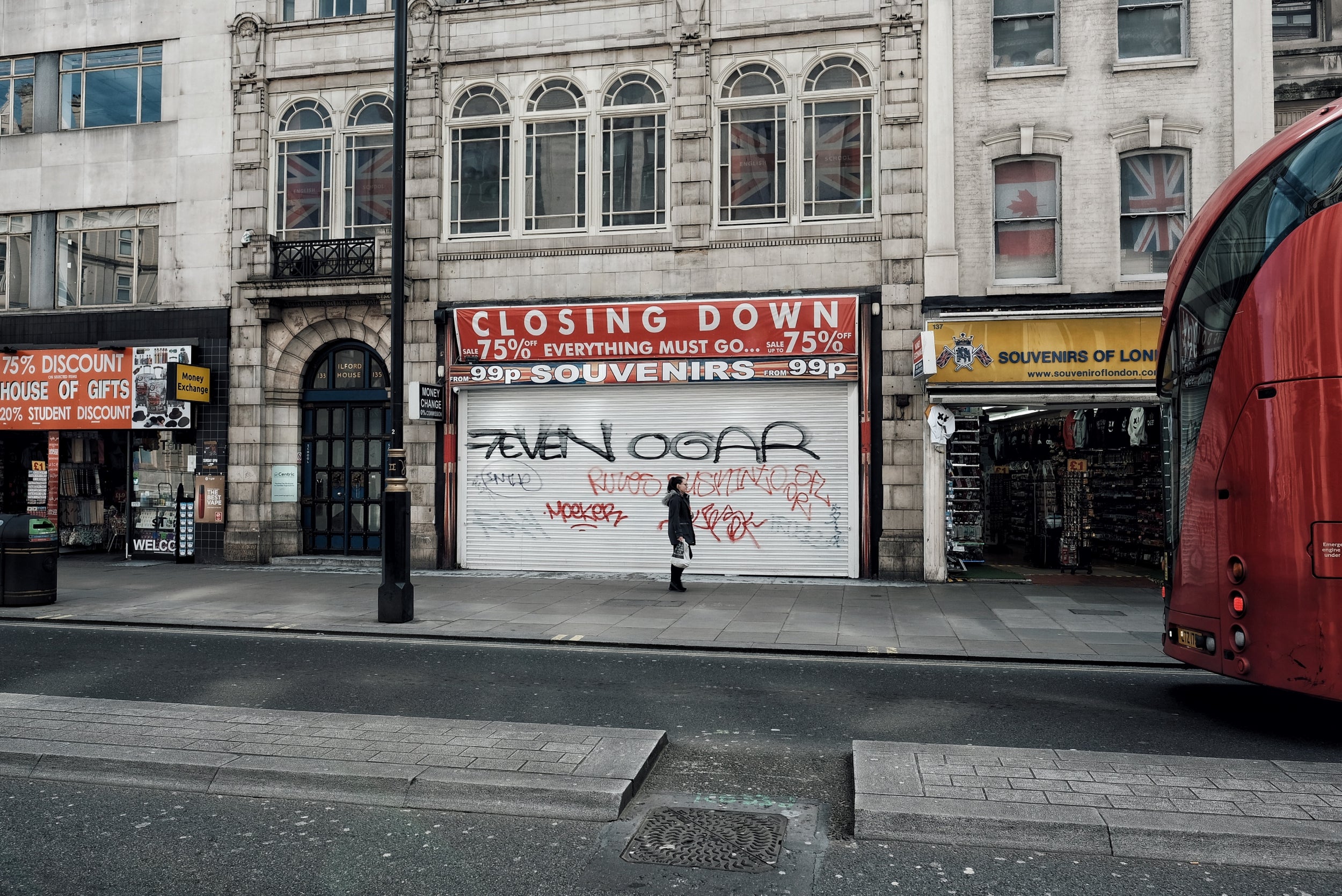
14/29
A woman stands alone in a deserted Oxford Street. Up until a few weeks ago, on average, half a million people visited the street per day
Angela Christofilou

15/29
A couple walk hand in hand down a street in Soho, a day before the stricter lockdown was announced
Angela Christofilou
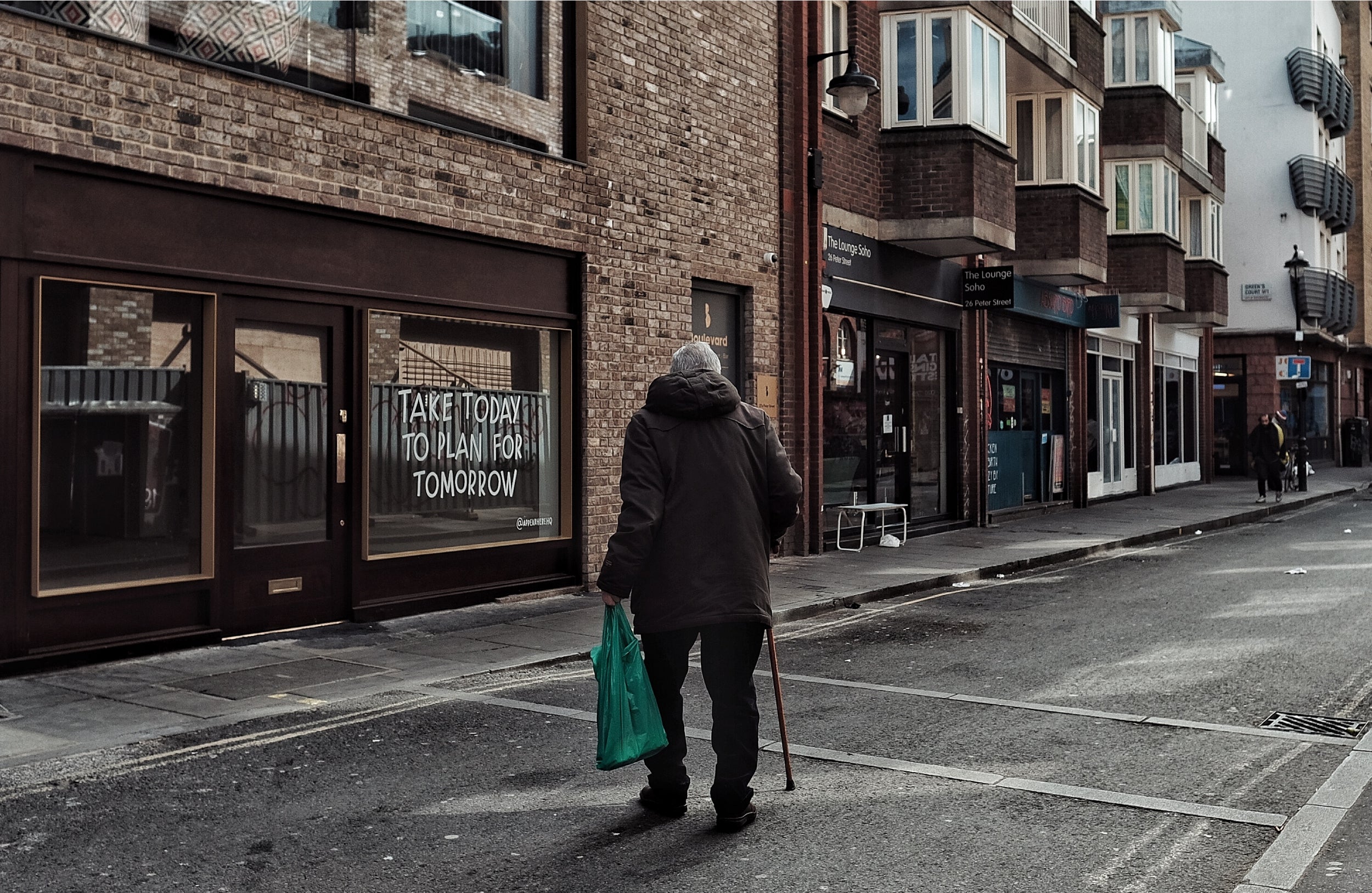
16/29
During the first week of March, shoppers focused on stockpiling necessities ahead of a countrywide lockdown
Angela Christofilou
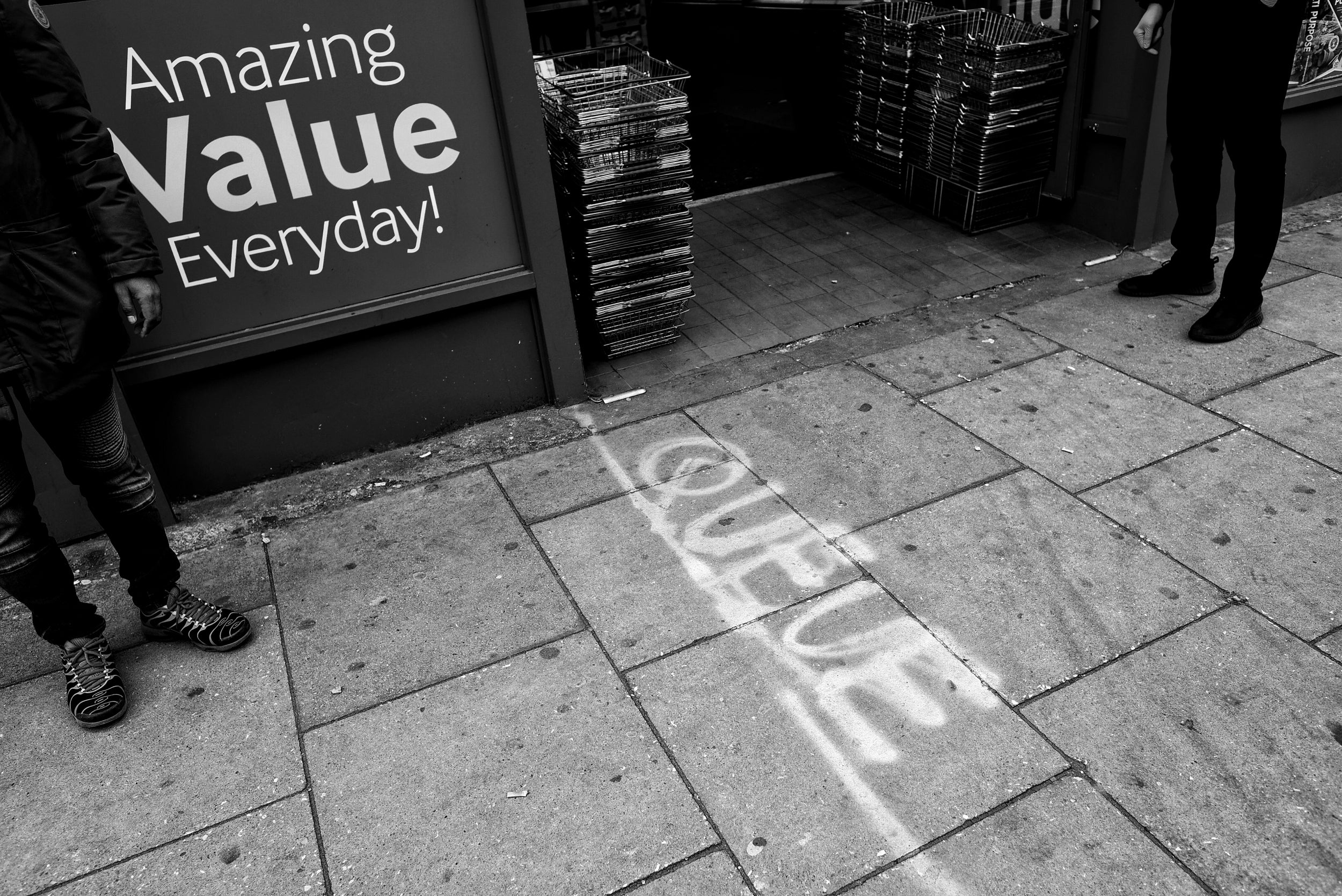
17/29
Many supermarkers are operating a queuing system to make sure only a limited amount of customers are allowed in at anyone time
Angela Christofilou
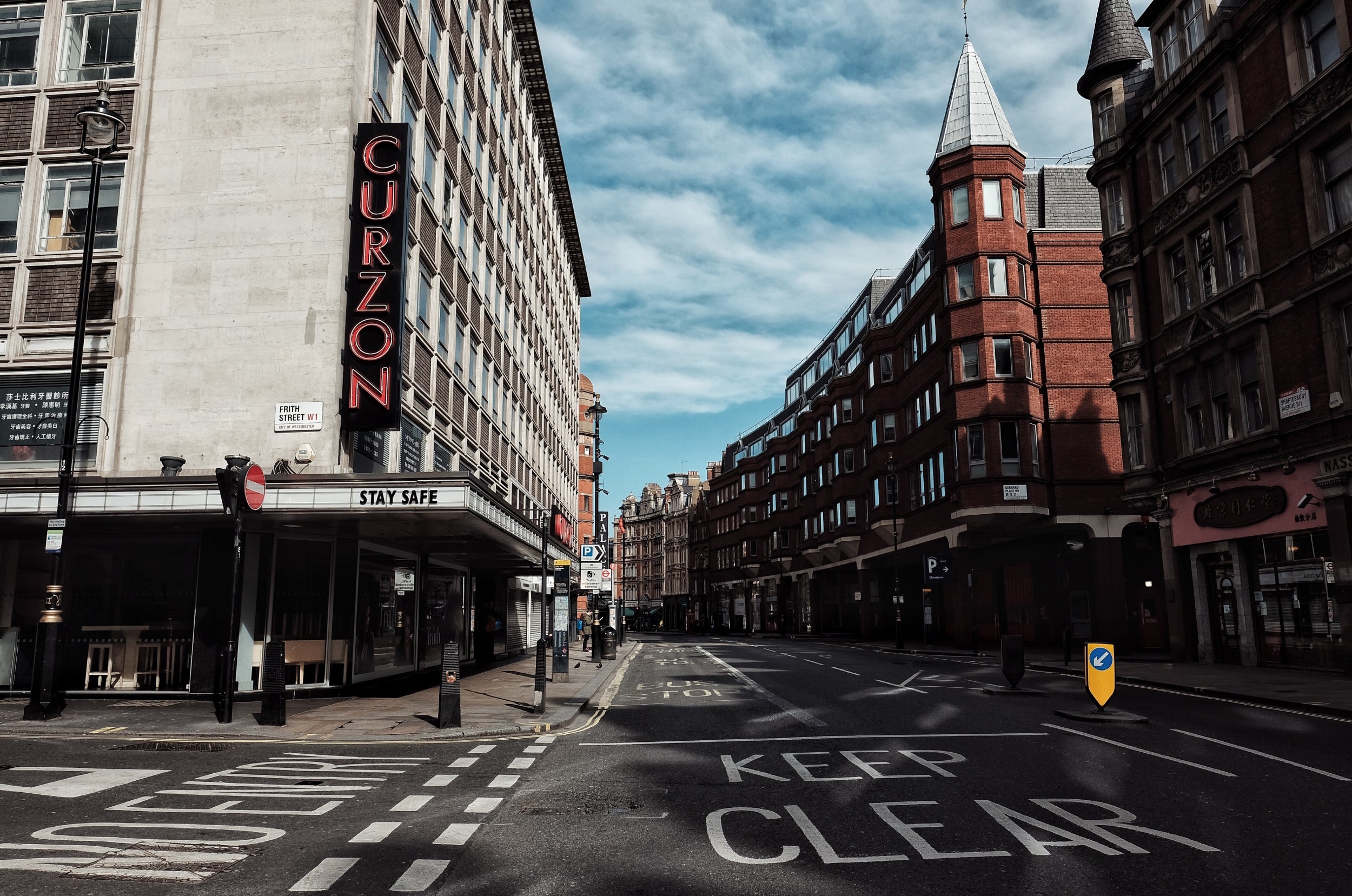
18/29
‘Stay Safe’ – Curzon cinemas are temporarily closed under the new measures
Angela Christofilou
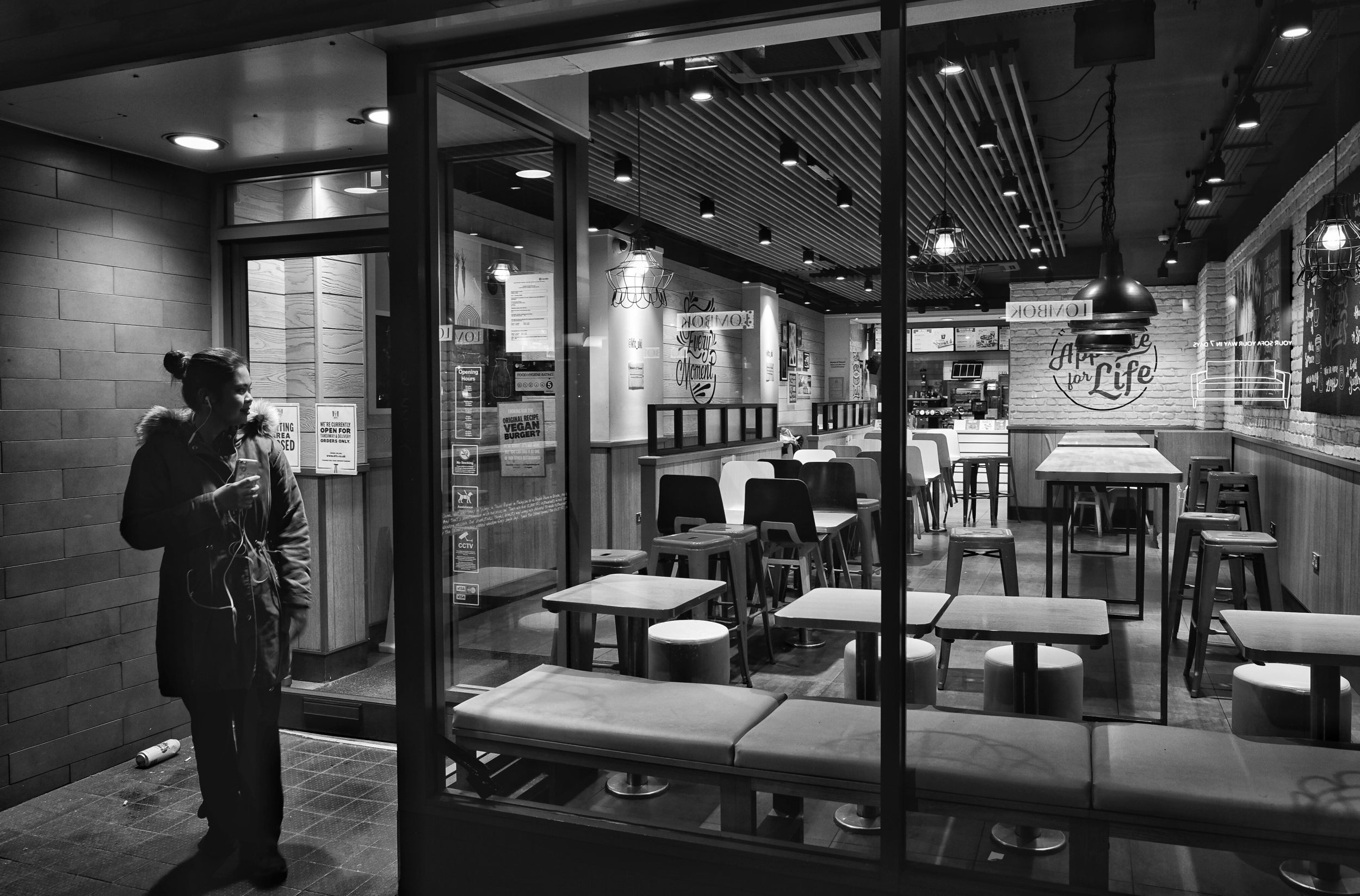
19/29
Pubs, restaurants and bars were ordered to shut as part of the lockdown
Angela Christofilou
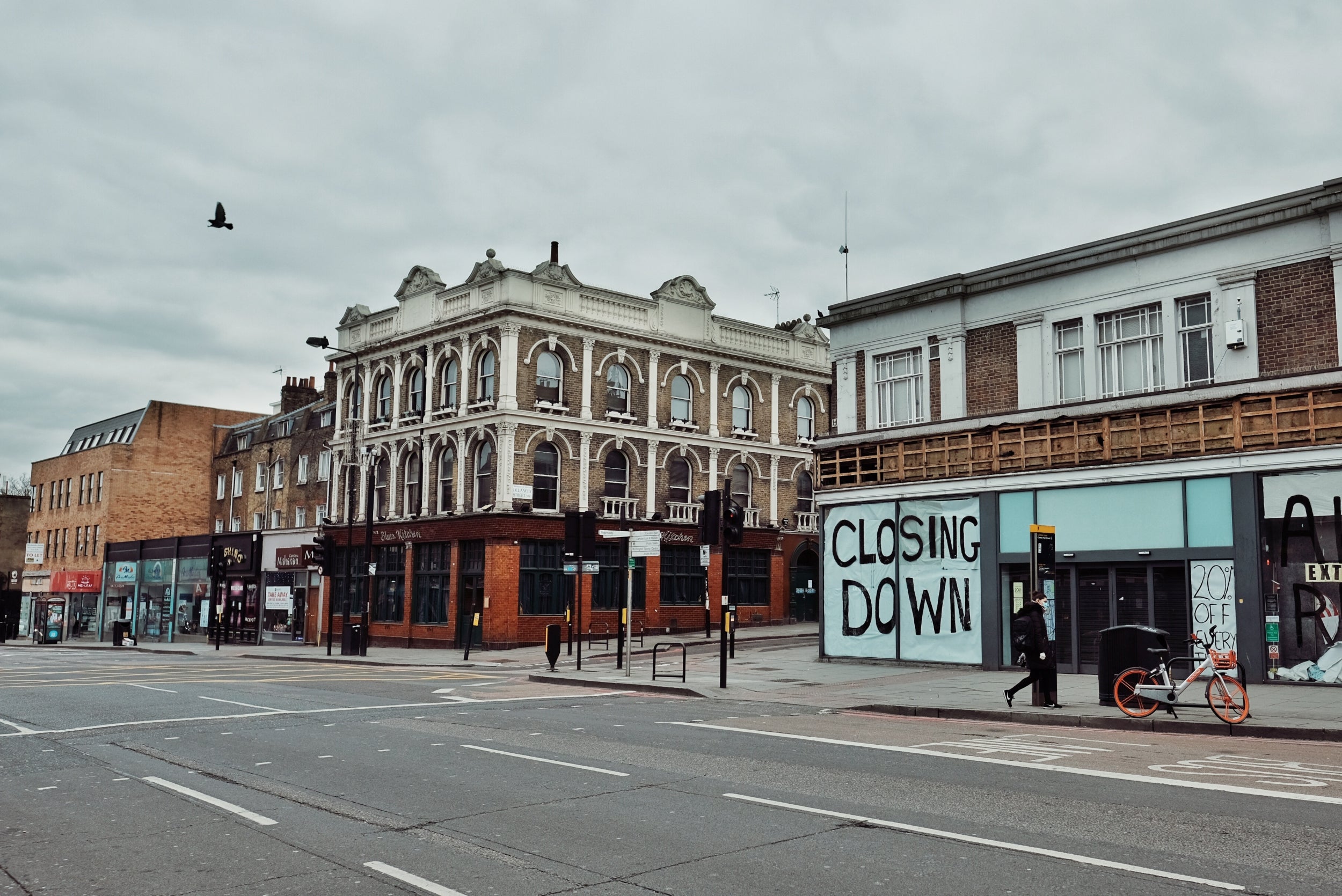
20/29 Camden High Street
There are fears that coronavirus could lead to permanent closure of struggling shops
Angela Christofilou
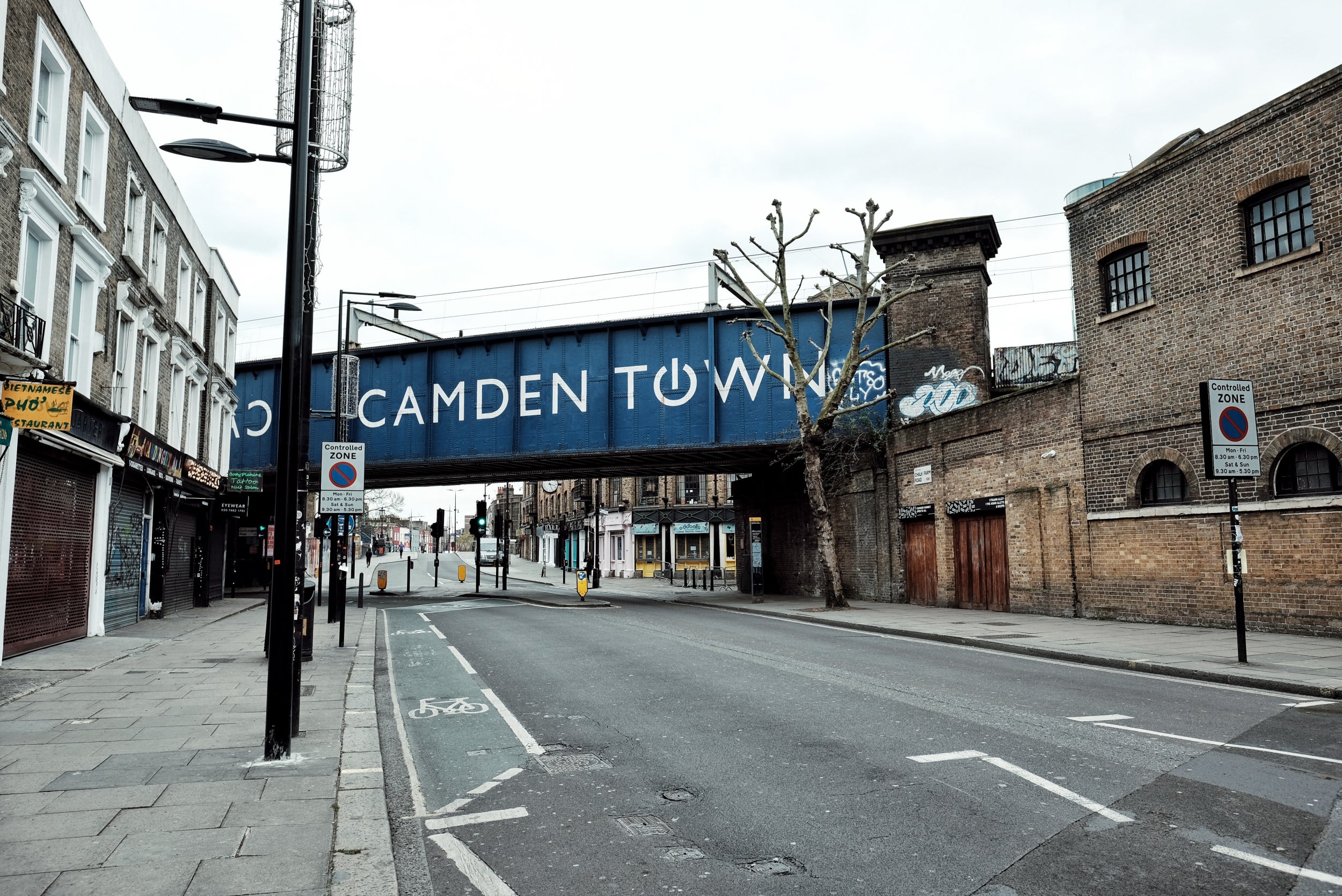
21/29
Camden Town is eerily silent on a normal working day
Angela Christofilou
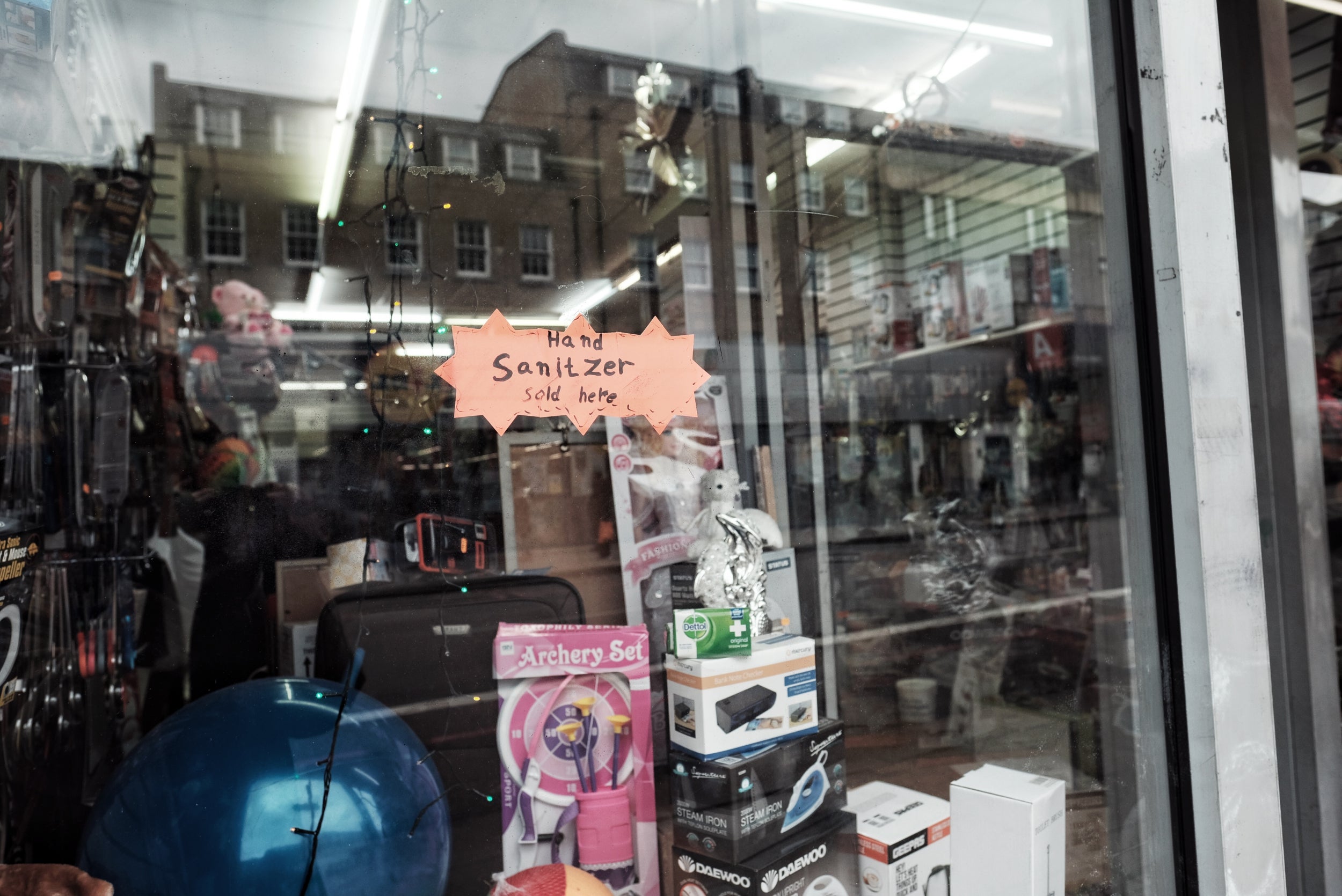
22/29
Shops and supermarkets ran out of hand sanitisers in the first week of the lockdown. As we approach the end of the second week most shops now have started to stock up
Angela Christofilou
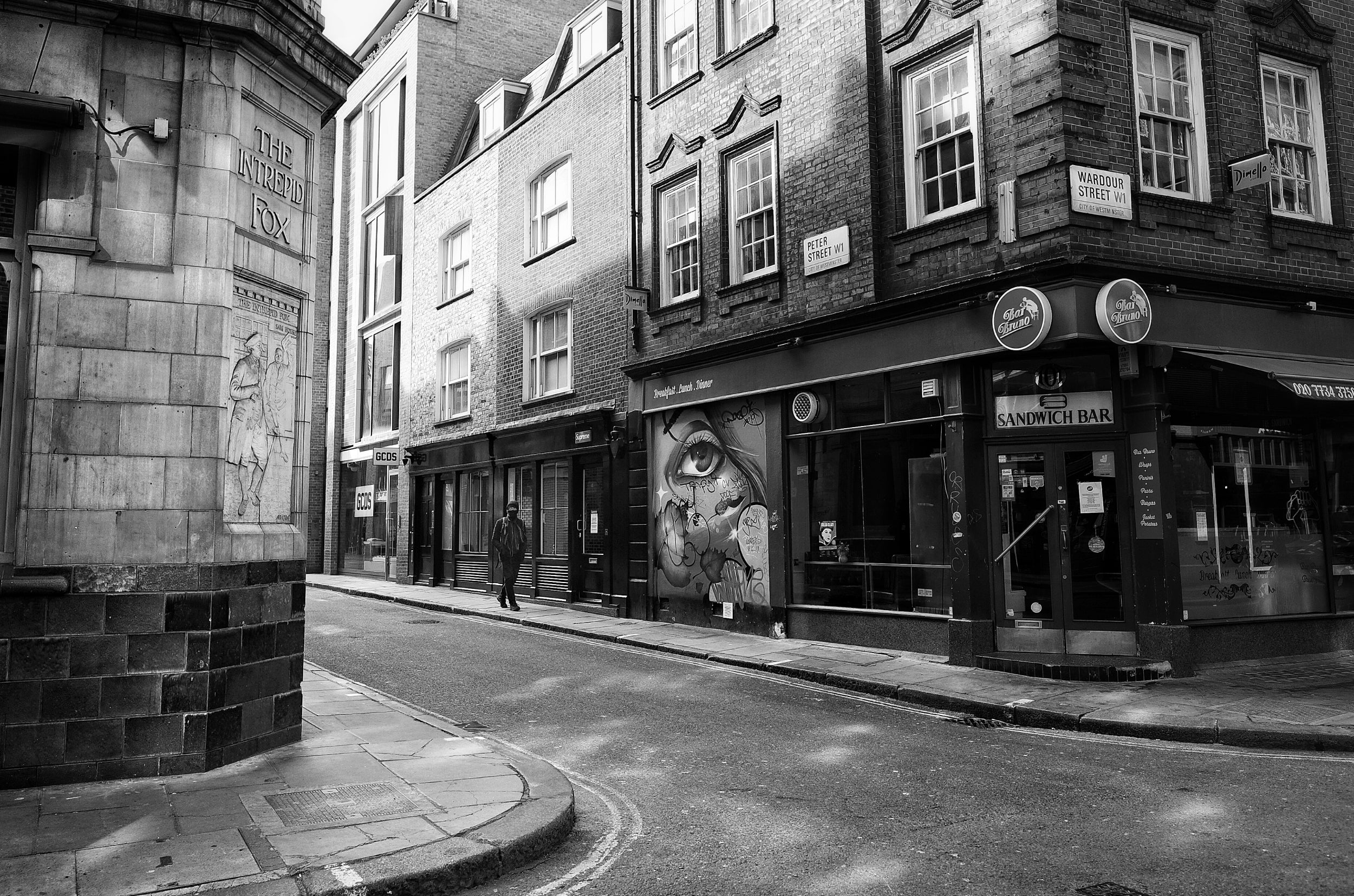
23/29
Empty streets around Soho
Angela Christofilou
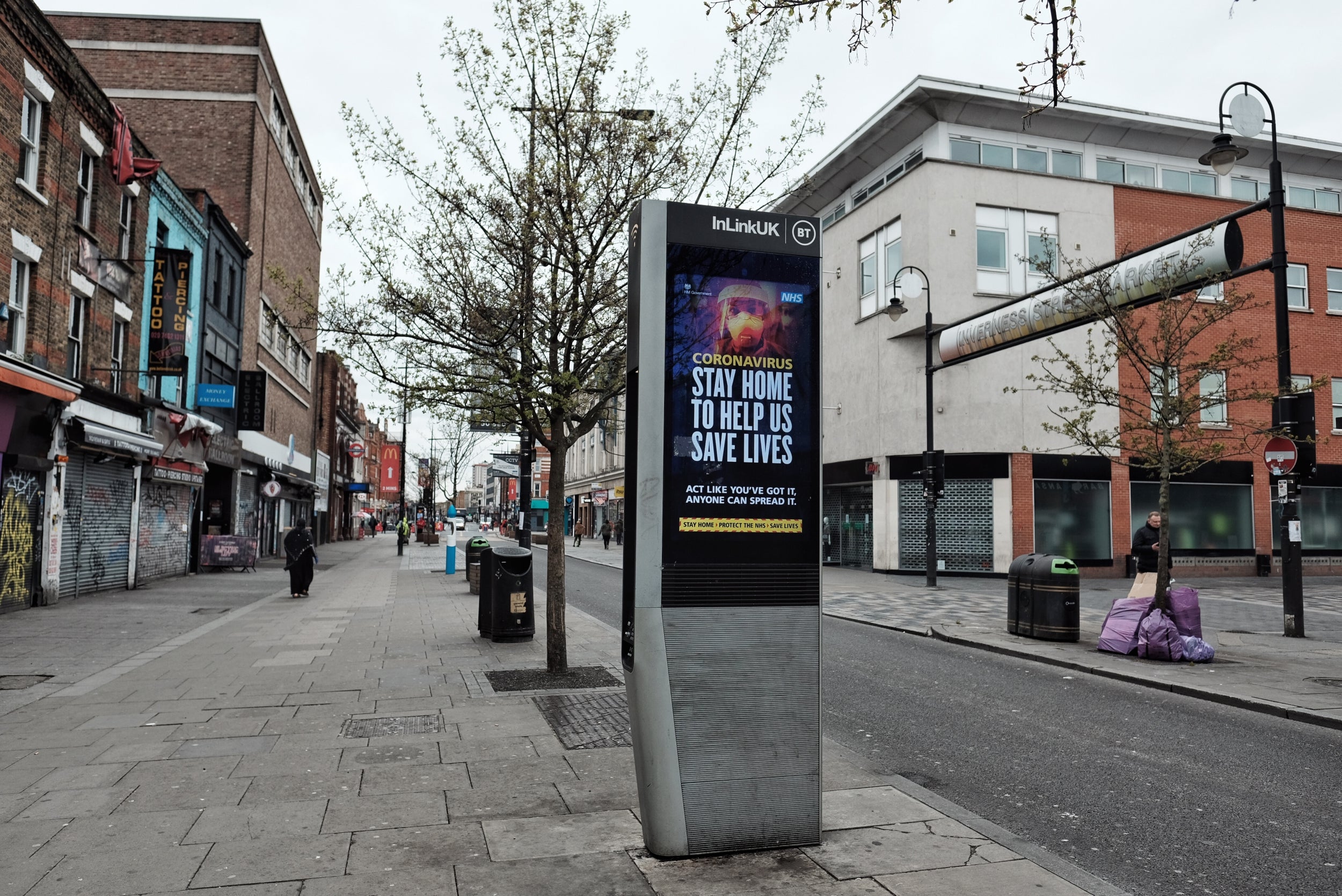
24/29
A noticeboard on Camden High Street urges the public to stay at home
Angela Christofilou
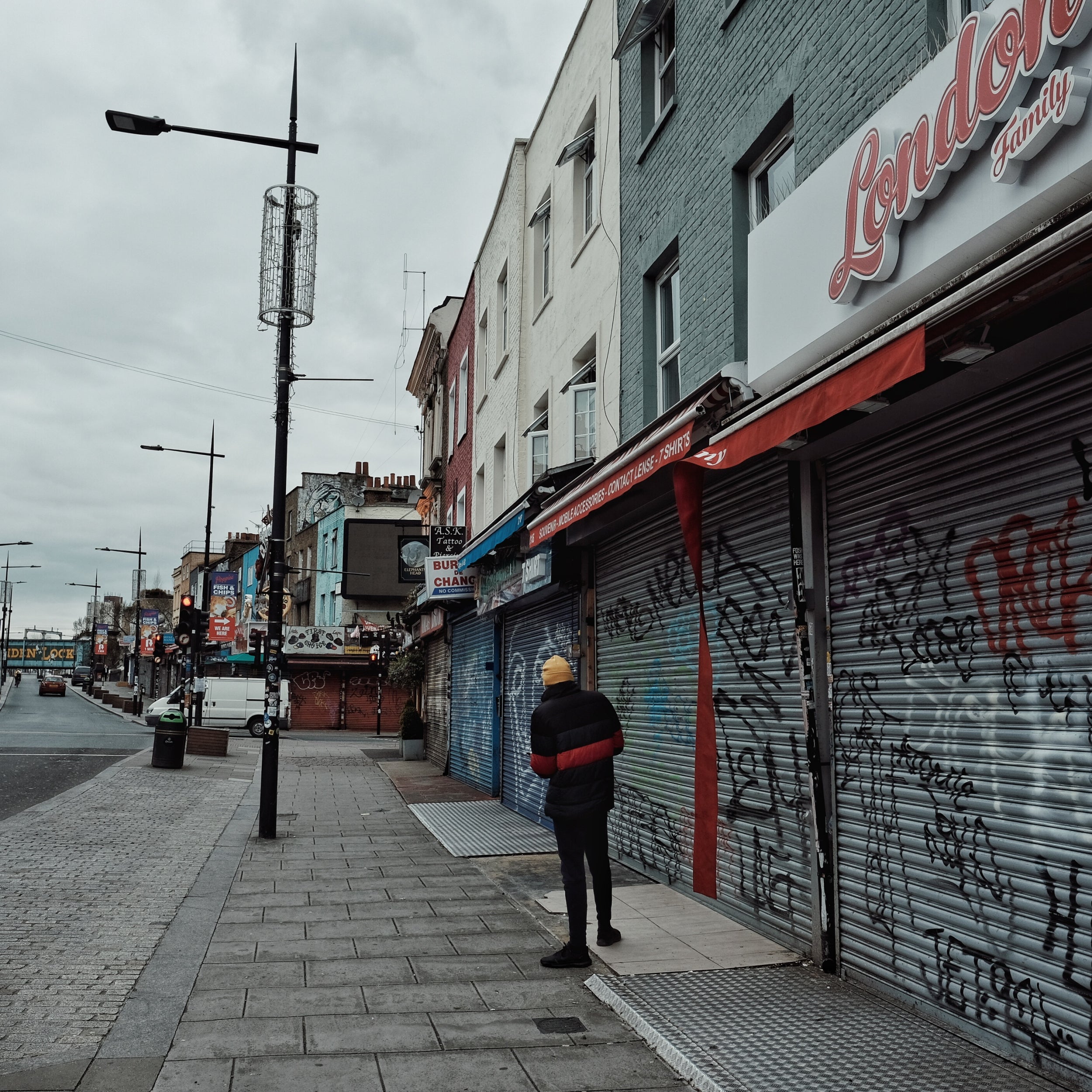
25/29
Camden High Street, one of London’s busiest tourist streets turns quiet
Angela Christofilou
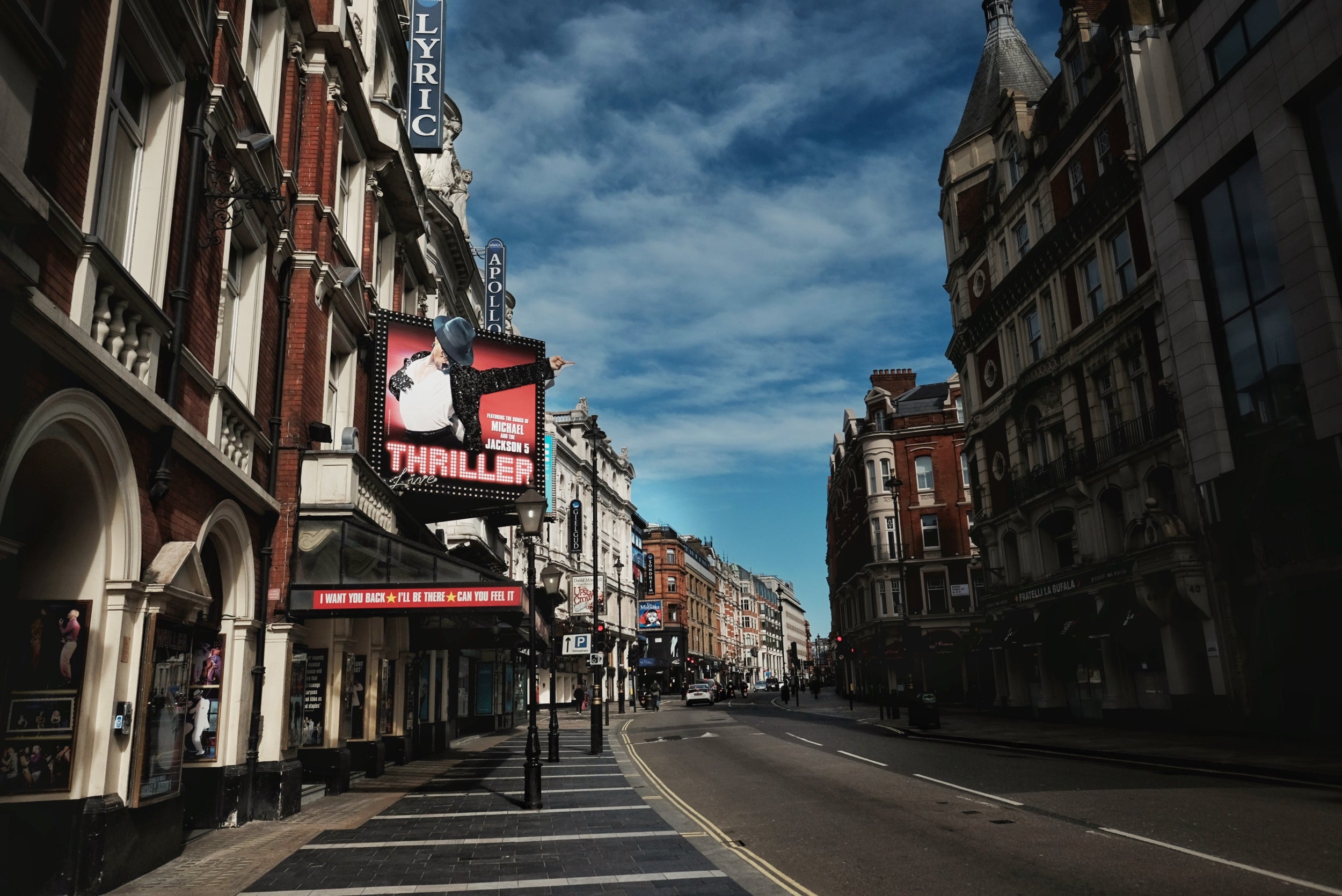
26/29
Thriller Live confirmed its West End run ended in the wake of the coronavirus outbreak
Angela Christofilou
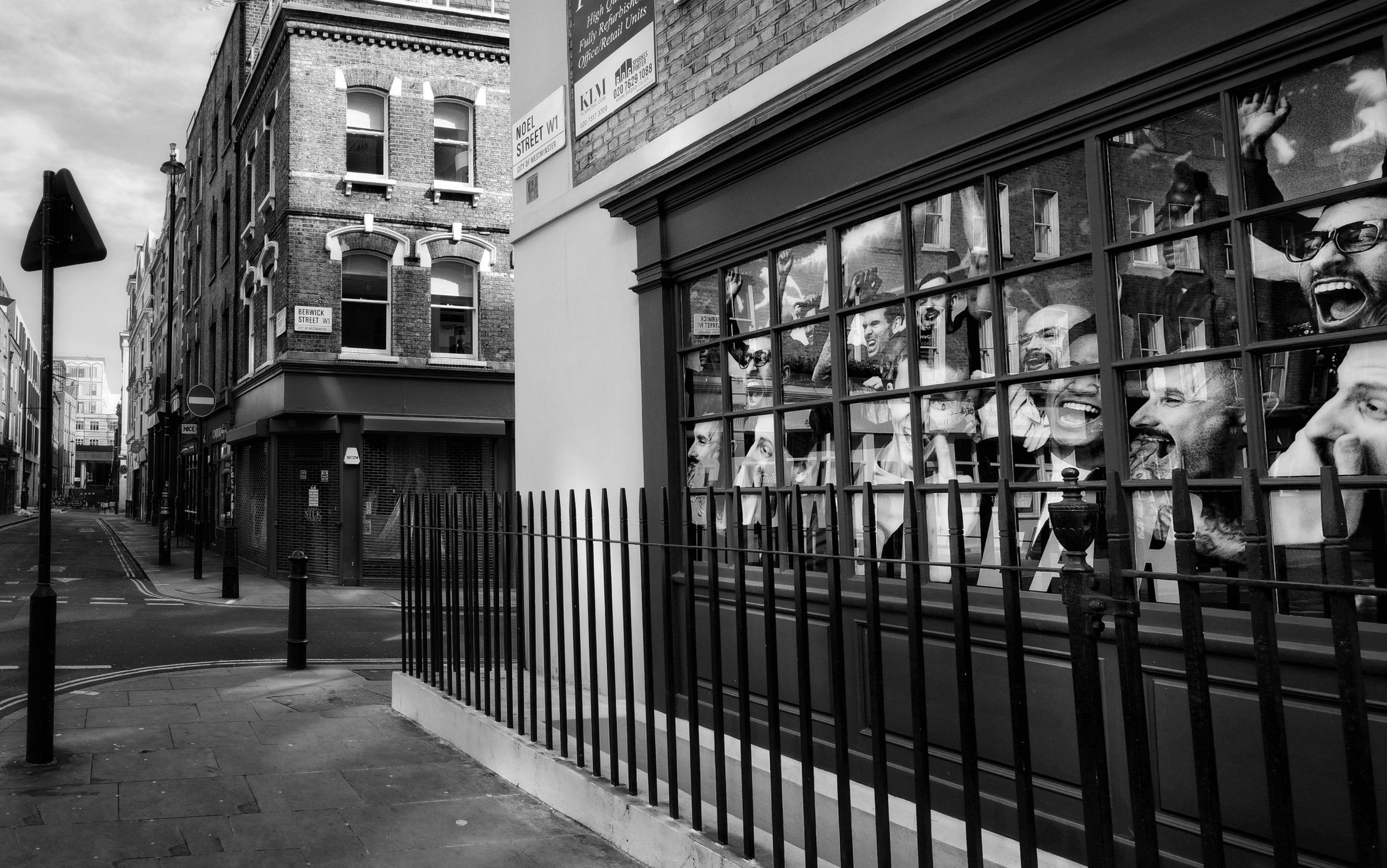
27/29
Empty and eerie Soho streets after stricter rules on social distancing announced
Angela Christofilou
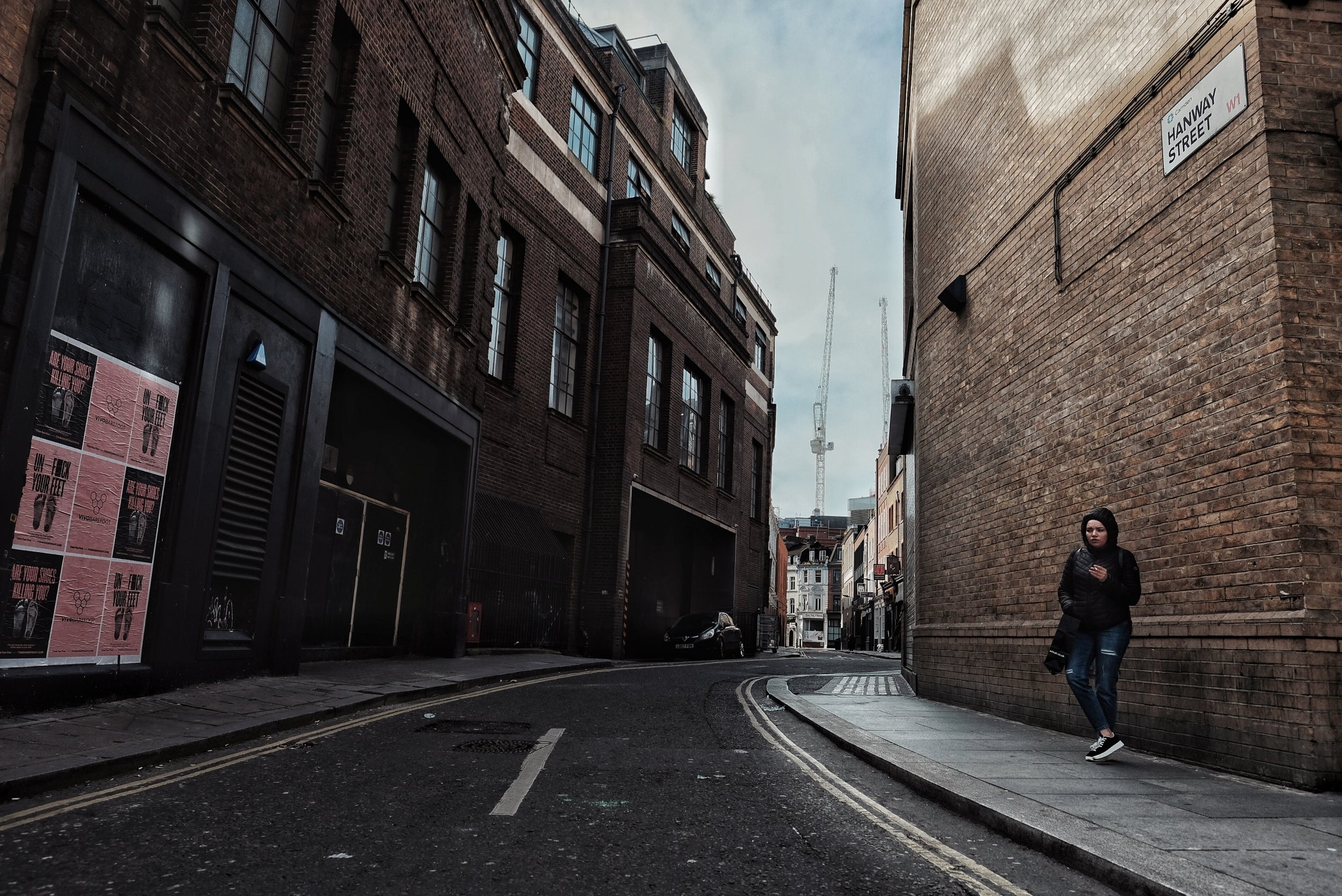
28/29
A woman pauses for a cigarette on Hanway Street, behind Tottenham Court Road
Angela Christofilou
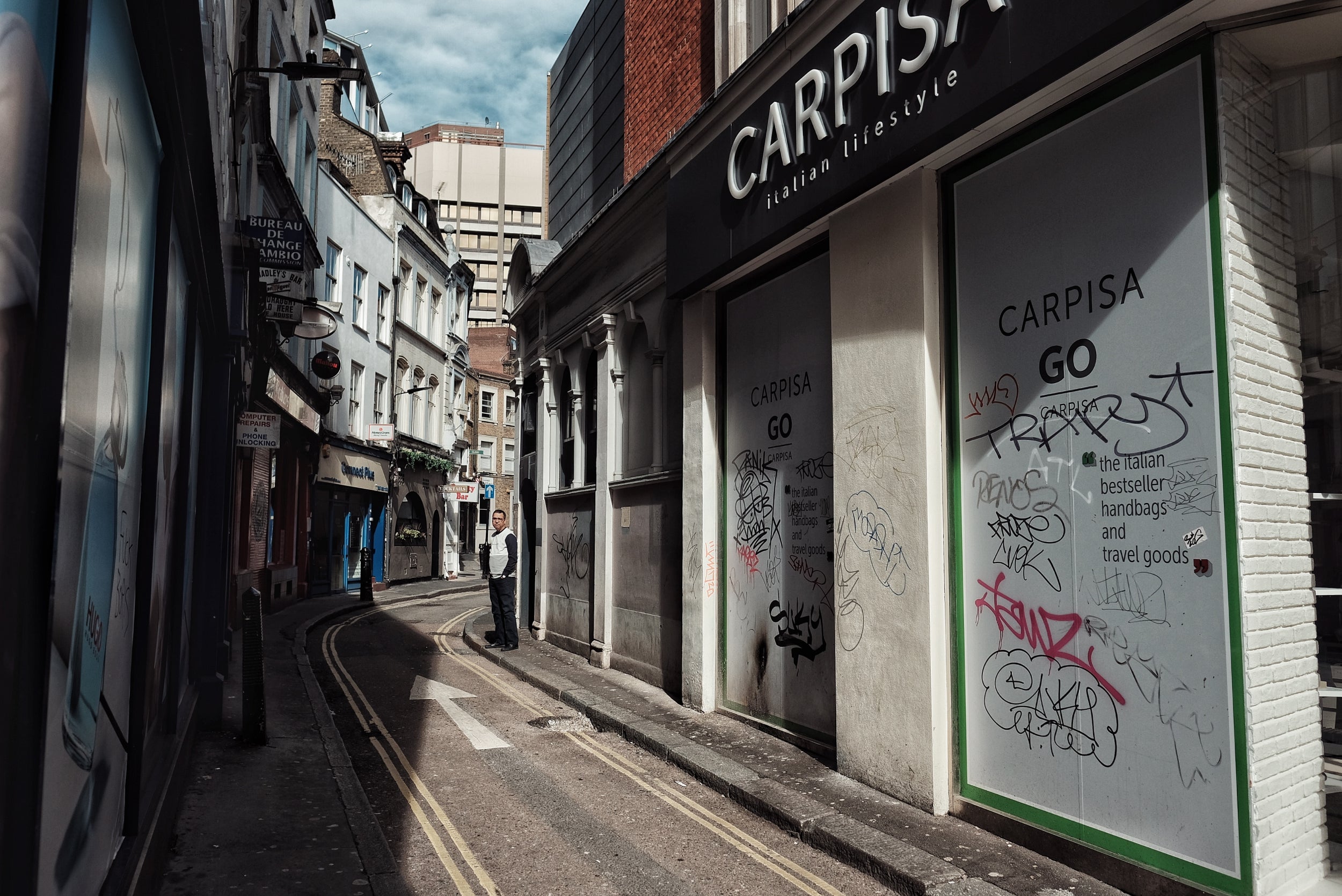
29/29
A man steps outside onto Hanway Street, that sits behind what is usually a bustling retail hub
Angela Christofilou

1/29
A man walks down a deserted Camden High Street
Photos Angela Christofilou

2/29
Goodge Street Station is one of the many stations closed to help reduce the spread
Angela Christofilou

3/29
An empty street in the heart of Chinatown
Angela Christofilou

4/29
People in masks in Chinatown a day after the lockdown
Angela Christofilou

5/29
A near-empty Piccadilly Circus during the first week of lockdown
Angela Christofilou

6/29
Sonja, my neighbour, who I photographed while taking a short walk. It was nice to briefly chat even from a distance
Angela Christofilou

7/29
A couple sit on the empty steps of the statue Eros in Piccadilly Circus
Angela Christofilou

8/29
Making sure I stay two-meters apart – D’Arblay Street, Soho
Angela Christofilou

9/29
A mannequin behind a shop window. UK stores have closed until further notice
Angela Christofilou

10/29
A notice displayed on a shop window in Camden
Angela Christofilou

11/29
As part of the lockdown, all non-essential shops have been ordered to close.Image from Camden High Street
Angela Christofilou

12/29
A skateboarder wearing a mask utilises his exercise allowance in the Camden area
Angela Christofilou

13/29
Communities have been coming together in a time of need
Angela Christofilou

14/29
A woman stands alone in a deserted Oxford Street. Up until a few weeks ago, on average, half a million people visited the street per day
Angela Christofilou

15/29
A couple walk hand in hand down a street in Soho, a day before the stricter lockdown was announced
Angela Christofilou

16/29
During the first week of March, shoppers focused on stockpiling necessities ahead of a countrywide lockdown
Angela Christofilou

17/29
Many supermarkers are operating a queuing system to make sure only a limited amount of customers are allowed in at anyone time
Angela Christofilou

18/29
‘Stay Safe’ – Curzon cinemas are temporarily closed under the new measures
Angela Christofilou

19/29
Pubs, restaurants and bars were ordered to shut as part of the lockdown
Angela Christofilou

20/29 Camden High Street
There are fears that coronavirus could lead to permanent closure of struggling shops
Angela Christofilou

21/29
Camden Town is eerily silent on a normal working day
Angela Christofilou

22/29
Shops and supermarkets ran out of hand sanitisers in the first week of the lockdown. As we approach the end of the second week most shops now have started to stock up
Angela Christofilou

23/29
Empty streets around Soho
Angela Christofilou

24/29
A noticeboard on Camden High Street urges the public to stay at home
Angela Christofilou

25/29
Camden High Street, one of London’s busiest tourist streets turns quiet
Angela Christofilou

26/29
Thriller Live confirmed its West End run ended in the wake of the coronavirus outbreak
Angela Christofilou

27/29
Empty and eerie Soho streets after stricter rules on social distancing announced
Angela Christofilou

28/29
A woman pauses for a cigarette on Hanway Street, behind Tottenham Court Road
Angela Christofilou

29/29
A man steps outside onto Hanway Street, that sits behind what is usually a bustling retail hub
Angela Christofilou
It comes as campaigners criticised the decision by Lords authorities to hold meetings privately for the first two weeks of the new system, compared to the Commons which will be broadcast live.
Darren Hughes, chief executive of the Electoral Reform Society told The Independent: “Voters across the world expect to see the legislators they are paying: it’s a core part of democratic transparency.
“This seems to be another sign of the Lords failing to meet the democratic standards voters expect.”
Both chambers are understood to have been given different briefs on what was required for parliamentarians, which has led to the temporary discrepancy between the Commons and the Lords.
Select committees will continue to operate virtually, with up to 20 hearings expected per week.
If the plans are approved, the new system will kick off on Wednesday with Welsh questions, followed by prime minister’s questions.
Discussions are also understood to be ongoing behind the scenes on proposals for remote voting, to prevent MPs being forced to walk through crowded voting lobbies.



